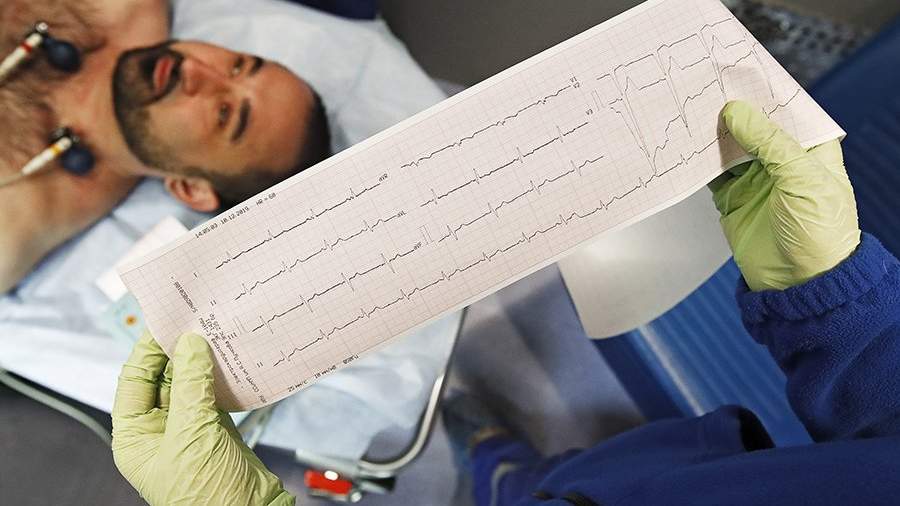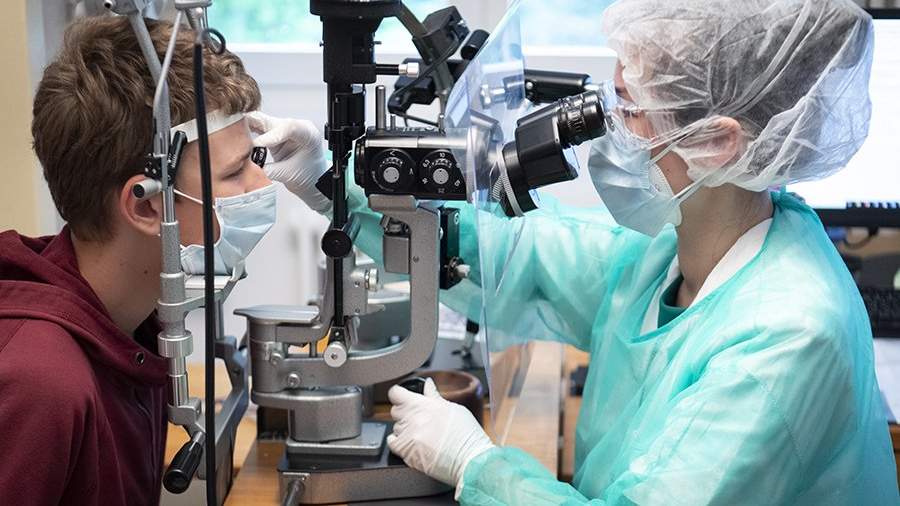Scientists are paying more and more attention to the long-term consequences of COVID-19, which are recorded in every tenth patient. In particular, researchers from Yale University found that a new infection can provoke chronic renal failure, and specialists from Wenzhou Medical University have identified a tendency for a sharp decrease in vision in those who have recovered. Izvestia compiled the top 5 consequences of coronavirus infection based on a survey of experts and publications in scientific journals. The only way to avoid unpleasant consequences is vaccination., experts emphasize.
Table Of Contents
Cardiovascular collapse
Coronavirus infection is associated not only with respiratory system disorders, but also with dysfunction of other organs and systems. The virus damages the endothelium (the lining that lines the inner surface of blood vessels). Impaired metabolism in the myocardium and oxygen supply to cardiomyocytes leads to the development of cardiomyopathy. Also with coronavirus infection complications such as heart rhythm disturbances and myocarditis are common, one of the leading experts of Russia in the field of cardiology, Professor Mehman Mammadov, told Izvestia.
– In recent months there is an increase in the number of patients with decompensated heart failure, especially among convalescents (recovered people. – “Izvestia”) of the elderly and senile age. The reason for this may be the consequences of pneumonia, pulmonary fibrosis, microthrombosis of the pulmonary arteries, – he said. – I also believe that there will be more patients with rhythm disturbances after suffering from viral myocarditis.
Therefore, patients with a tendency to cardiovascular disease need to be vaccinated.
A blow to the kidneys
Scientists at Yale University School of Medicine conducted a study involving 1.6 thousand patients with acute kidney injury. Specialists monitored people who were diagnosed with pathology while in hospital with coronavirus, as well as those who were not infected with this infection. According to American scientists, 24-57% of hospitalizations with COVID-19 and from 61% to 78% of hospitalizations in intensive care units are accompanied by kidney damage.… Doctors monitored the condition of the patients 21 days after discharge and found that the original kidney function did not recover in those who had undergone coronavirus infection. Moreover, they were more likely to require dialysis than non-COVID-19 patients with acute kidney inflammation. Those who had the infection also had a higher risk of developing chronic renal failure (CRF), the study said.
According to Izvestia, associate professor of the Department of Internal, Occupational Diseases and Rheumatology, Nephrologist of the Clinic named after EAT. Tareev of the Sechenov University Nikolai Bulanov, kidney damage in coronavirus infection is one of the most frequent manifestations and complications among patients who underwent inpatient treatment. And research into the long-term effects of this kind in patients with coronavirus is especially valuable.
– In some patients (not in the majority, but their number is quite noticeable), complete recovery of renal function does not occur… This suggests that acute organ damage has actually led to irreversible damage: chronic renal failure, with which patients are likely to live.
According to the specialist, such people need the supervision of a nephrologist and additional measures to prevent the progression of this condition.
Prick of sight
Scientists from the Stem Cells and Retinal Regeneration Laboratory of the Eye Hospital of Wenzhou Medical University in China have published a review summarizing all the available material on the diseases of the visual system caused by the coronavirus. The authors pointed out the key roles of two receptors through which SARS-CoV-2 can infect the eyes.
COVID-19 can cause visual impairment, confirmed to Izvestia the head of the ophthalmology department of the Federal State Budgetary Institution NMITSO FMBA of Russia, a full member of the European Society of Cataract and Refractive Surgeons (ESCRS), a member of the Russian Society of Ophthalmologists Nika Takhchidi. We are talking about lesions of the ocular surface (conjunctivitis), changes in the retina, inflammation and thrombosis of the vessels of the eyes.
– Coronavirus can affect the vessels of the eyes, causing microvascular damage to the retina. They are manifested as follows: inflammation of the type of vasculitis and a state of hypercoagulability (disseminated intravascular coagulation syndrome). Inflammation is most often manifested by opacities in the vitreous body, changes in the retina. Thrombosis of retinal veins and arteries is manifested by a decrease in vision, sometimes a change in the field of vision, – the expert explained.
Tasteless and odorless
The olfactory system is a complex, well-coordinated system of receptor cells in the nasal mucosa, conductive nerve fibers and the olfactory center of the brain. In case of malfunction of any link, the process of smelling is disrupted. As a rule, a violation of the sense of smell in COVID occurs on the fourth to seventh day of illness, and in most patients, the sense of smell is restored within 14 days. However, there is evidence of a longer course of olfactory disorders.
– The mechanism of development of anosmia with a new coronavirus infection differs from anosmia caused by an allergic reaction or the common cold and runny nose. Some scientists believe that the virus infects the olfactory nerve fibers that are located in the nasal cavity., – Maria Petina, deputy chief physician of the Medsi clinical diagnostic center, explained to Izvestia.
According to research results, full recovery from coronavirus anosmia takes from three days to three months. You should not engage in self-medication in such cases, it is recommended to consult a specialist as soon as possible after the onset of symptoms. It is unacceptable to use traditional medicine, conduct olfactory tests with harsh odorous substances that can damage the nasal mucosa (for example, ammonia).
Got to the guts
Patients who have undergone COVID most often have symptoms of an increase in the number of enteritis, lesions of the gastrointestinal tract, diarrhea after each meal that is not associated with a dietary disorder., emphasized Maria Petina.
– As a result the patient loses weight, important trace elements, nutrients… His quality of life is seriously deteriorating. Sometimes pseudoneuronal colitis is even detected, when, with reduced immunity, pathogenic microflora begins to multiply. Experts believe that the reason for this is not only coronavirus infection, but also massive treatment with antiviral drugs, she said.
Experts emphasize that vaccination is the only way to avoid all these consequences.




